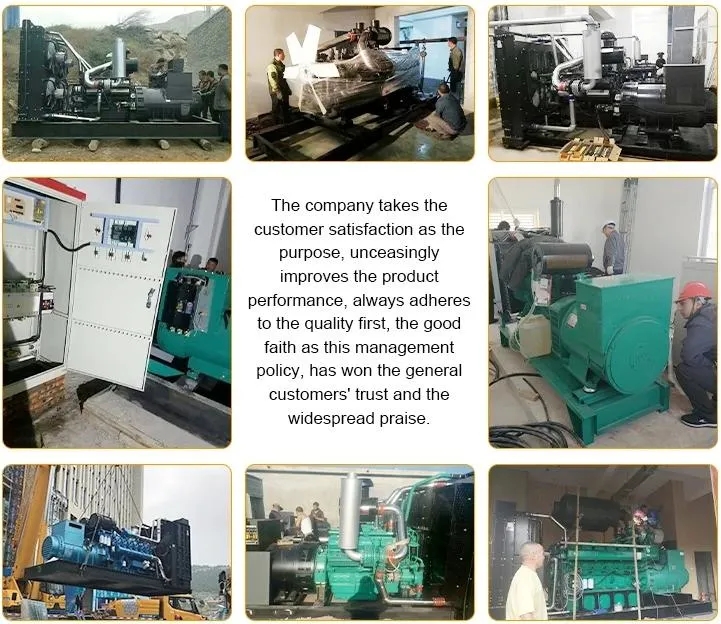Diesel Generators for Remote Power Supply A Comprehensive Guide

Introduction
In today's modern world, access to reliable power supply is crucial for various industries, communities, and individuals. However, in remote areas where grid connections are not feasible, diesel generators play a vital role in providing power for essential operations. In this comprehensive guide, we will explore the use of diesel generators for remote power supply, their benefits, applications, maintenance requirements, and environmental considerations.
1. Understanding Diesel Generators
Diesel generators are a type of engine-driven generator that uses diesel fuel to produce electricity. They are commonly used in situations where a reliable and continuous power supply is essential, such as in remote areas, construction sites, mining operations, and emergency backup systems. Diesel generators are known for their efficiency, durability, and ability to provide high power output.
2. Benefits of Diesel Generators for Remote Power Supply
2.1 Reliability: Diesel generators are known for their reliability and ability to provide continuous power supply, making them ideal for remote locations where grid power may be unreliable or unavailable.
2.2 Fuel Efficiency: Diesel generators are more fuel-efficient compared to other types of generators, such as gasoline or natural gas generators. This makes them cost-effective to operate in remote areas where fuel availability may be limited.
2.3 High Power Output: Diesel generators are capable of providing high power output, making them suitable for powering various equipment and machinery in remote locations.
2.4 Durability: Diesel generators are built to withstand harsh environmental conditions, making them a reliable power source for remote areas with extreme weather or challenging terrain.

3. 500kw diesel generator for industrial applications of Diesel Generators in Remote Areas
3.1 Off-Grid Communities: Diesel generators are commonly used to provide power to off-grid communities that are not connected to the main electricity grid. These generators can power homes, schools, healthcare facilities, and other essential services in remote areas.
3.2 Telecommunication Towers: Diesel generators are often used to provide backup power for telecommunication towers in remote locations. This ensures that communication networks remain operational during power outages or emergencies.
3.3 Mining Operations: Diesel generators are essential for powering heavy machinery, lighting, and other equipment in remote mining sites where grid power is not available.
3.4 Construction Sites: Diesel generators are widely used in construction sites located in remote areas to power tools, equipment, and temporary facilities.
4. Maintenance Requirements for Diesel Generators
4.1 Regular Inspections: Diesel generators require regular inspections to ensure that all components are functioning properly. This includes checking fuel levels, oil levels, coolant levels, and battery condition.
4.2 Fuel Quality: The quality of fuel used in diesel generators is crucial for their performance and longevity. It is important to use clean and high-quality diesel fuel to prevent engine damage and ensure efficient operation.
4.3 Oil Changes: Regular oil changes are essential to maintain the performance of diesel generators. Dirty or old oil can cause engine wear and reduce efficiency.
4.4 Filter Replacement: Air filters, fuel filters, and oil filters should be replaced at regular intervals to prevent contaminants from entering the engine and causing damage.
5. Environmental Considerations
5.1 Emissions: Diesel generators produce emissions that can have environmental impacts, including air pollution and greenhouse gas emissions. It is important to choose modern, low-emission diesel generators and follow proper maintenance practices to minimize emissions.
5.2 Noise Pollution: Diesel generators can produce noise pollution, especially in quiet and remote areas. Proper installation, soundproofing, and maintenance can help reduce noise levels and minimize the impact on the environment and surrounding communities.
5.3 Fuel Spills: Proper fuel storage and handling practices are essential to prevent fuel spills and contamination of soil and water sources. Spill containment systems should be in place to minimize the risk of environmental damage.
Conclusion
Diesel generators play a crucial role in providing reliable power supply in remote areas where grid connections are not feasible. Their benefits, applications, maintenance requirements, and environmental considerations make them a versatile and essential power source for various industries and communities. By understanding the importance of diesel generators for remote power supply and following best practices for their operation and maintenance, we can ensure a sustainable and reliable power supply in even the most remote locations.
